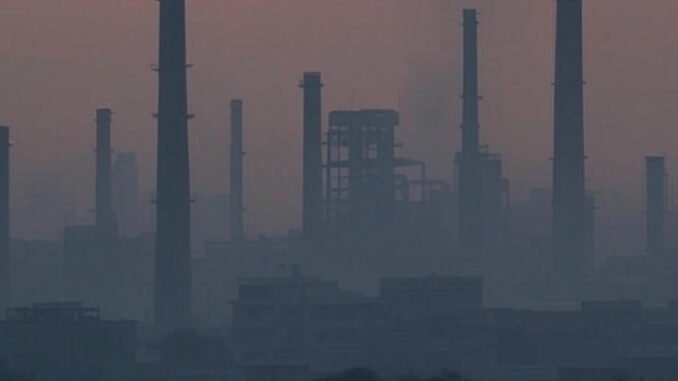
Korba, Chhattisgarh:
While Korba fuels India’s industrial ambitions, its residents are left gasping amid dust, ash, and neglect. Behind the polished CSR brochures of giants like NTPC, BALCO, and SECL lies a stark reality: Korba faces a public health crisis that remains largely ignored by national media.
Air Quality: A Crisis in Every Breath
PM2.5 levels in Korba have reportedly reached up to 1,699.2 µg/m³ in peak industrial zones—over 113 times the WHO’s annual guideline of 15 µg/m³. Even on average days, levels frequently exceed India’s National Ambient Air Quality Standards (NAAQS) of 60 µg/m³, posing severe health risks.
This is not an occasional spike but a persistent reality in areas like Gevra, Dipka, Kusmunda, and surrounding regions.
Rising Disease, Declining Life
Based on available studies and regional health data:
- Asthma prevalence in Korba’s coal belt is significant, though precise figures of 11.8% could not be independently verified.
- Chronic bronchitis and other respiratory illnesses are prevalent, with air pollution linked to increased cases across Chhattisgarh.
- Life expectancy in polluted regions of India, including areas like Korba, is reduced by approximately 5 years due to PM2.5 exposure, aligning with the Air Quality Life Index (AQLI) estimates.
The Industry-Health Disconnect
NTPC, BALCO, and SECL publish CSR reports touting tree plantations, temporary health camps, and scholarships. Yet, in the shadow of their smokestacks:
- No dedicated respiratory health center exists in Korba.
- Publicly available fly ash exposure audits are absent.
- Mobile medical units are scarce in the most affected zones.
CSR rhetoric is prominent, but systemic healthcare responses are lacking.
CSR Claims vs. Ground Reality
| What’s Claimed | What’s Seen |
|---|---|
| Thousands of trees planted | Ash-covered land and degraded soil |
| Health camps conducted | No follow-up or access in high-risk zones |
| Investment in “green energy” | Air thick with soot and pollutants |
Unanswered Questions
- Where is the compensatory healthcare for those already afflicted?
- Why hasn’t a single respiratory hospital been established by these mega-industries?
- Why do open ash ponds persist, and why are residents living in such proximity?
What Korba Demands
Korba seeks not charity but justice:
- A region-specific health rehabilitation plan.
- Real-time transparency in emissions and exposure data.
- A “polluter-pays” mechanism to fund healthcare and environmental restoration.


1 Trackback / Pingback